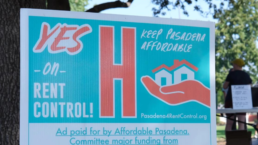In the midterms, ballot initiatives cut through partisan polarization to reveal majorities for higher wages, expanded health care access, and abortion rights. That’s why many state-level Republicans are attempting to undermine the ballot initiative process.
by Benjamin S. Case and Michael McQuarrie, Jacobin
This election cycle, voters in California, Michigan, and Vermont enshrined the right to abortion in their state constitutions, while voters in Kentucky and Montana rejected attempts to make abortion illegal. Nebraska and Washington, DC, voters raised minimum wages. Arizona voters limited medical debt interest rates. South Dakotans expanded access to Medicaid. Voters in Alabama, Tennessee, Oregon, and Vermont abolished slavery in prisons. And they did it all by ballot initiative, continuing the trend of voters using citizen initiatives to pass majoritarian policies that elected representatives won’t.
Citizen initiatives allow voters to gather petition signatures to put a policy question on the ballot. Half the states and many municipalities have them, but for a century the Left has largely neglected them. In the past decade that’s begun to change, as labor unions and advocacy groups began using citizen initiatives to directly pass policies that benefit working-class communities — policies that are supported by the majority but that legislators won’t advance, as elected leaders in both parties consistently prove faithful to elite interests.

We recently published a report showing just how effective citizen initiatives have been in winning policies that would be impossible to win through the legislative process. In the past decade, initiatives that return wealth, rights, and decision-making power to working communities and vulnerable populations pass most of the time in red, blue, and purple states alike. Initiatives that redistribute wealth and resources to working-class people have a 75 percent success rate. The focus on polarizing Democrat-vs-Republican fights dominates political commentary, but citizen initiative results reveal that there is widespread support for a policy agenda that is considerably left of both parties.
Recent Posts
What To Do When You See ICE In Your Neighborhood
July 14, 2025
Take Action Now How can you deter the Trump administration’s immigrant deportation machine when it pops up in your community? Follow these…
ICE Campaign Of Violence Will Lead To More Deaths
July 14, 2025
Take Action Now Jaime Alanis’s death shows the horrific consequences of a secret police force behaving with utter impunity.By Natasha Lennard, The…
Hague Group: “Concrete Measures” or Sack of Cement? Will It Move to Sanctions, Peace Force and Ensuring Aid to Gaza?
July 13, 2025
Take Action Now Will the meeting in Colombia be a coalescence of global opinion driving states to just action — or just more rhetoric from various…
Why Are Democratic Lawmakers Still Meeting With Netanyahu?
July 12, 2025
Take Action Now Pictures show Democrats like Chuck Schumer standing next to Netanyahu, smiling.By Sharon Zhang, Truthout A bipartisan group of…




